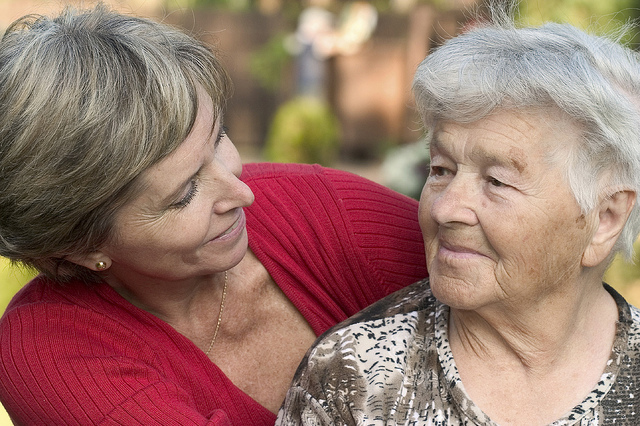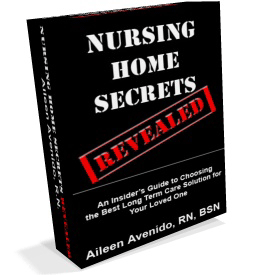|
Hyperhydrosis | Contact 
|
The Caregiver's Emotions

There is a balance between the jobs of a caregiver and the feelings of a caregiver. If you can detach yourself from the many emotions you feel when you have taken on this hard job,
many of the "tasks" are fairly routine.
Whether it's doing your mom and dad's laundry or grocery shopping or paying the bills or filling out the Medicare paperwork,
much of the "stuff" of being a caregiver is pretty humdrum. Sometimes just finding the right dentist for your parents could be helpful.
The dentists at Dentist South Jersey deliver the best quality service in a caring environment.
But just doing the chores of taking care of your aging parent's physical needs is not all there is to being a caregiver. If that was all there was to it, you could hire someone to handle that. No, the real challenge of being a good caregiver for your elderly parent is the emotional support you give to them as they struggle with a tough part of their life.
This is particularly true if you are helping your mom or dad through the trials of a terminal illness. Even if they are good at putting up a brave front for the grandkids and the people at church, your mom or dad experience a gamut of feelings if the end of their lives is directly ahead due to that illness.
The caregiver's emotions at helping your parent deal with this somber realization are tremendously complex. You have your personal emotions that are a preliminary form of grief. That is why at the funeral of a senior citizen who passed away from a lingering disease, the caregiver doesn’t seem to be grieving as much as others. The truth is, the caregiver gets most of her grieving out of the way while the senior is still here and they work together to cope with the decline and passing as best they can. So by the funeral, the caregiver is usually "all grieved out."
But your emotions about how you feel about your loved one and about this job of taking care of mom or dad in their final months or years will have a direct effect on how you go about the job of taking care of your mom or dad and how you feel about that job as well. Probably the two emotions most commonly associated with taking care of an elderly person in decline are pity and compassion.
Pity is not really a good summary of the feelings you have about taking care of your elderly parent or parents. You don’t really “feel sorry for them” the same way you might feel toward a hurt puppy or a baby that cries. Pity is not an action emotion. The action emotion that doesn't just look at the suffering or unhappiness of the parent and say, "that’s a shame" is compassion. Compassion sees a need in the elderly parent and doesn't just feel bad about it. Compassion says, "There's a need. What can I do about it?" Compassion is the genuine emotion of a caregiver.
Can you influence whether you will react with pity or compassion to your elderly parent? Yes and how you manage your emotions will be a big factor in how successful you are as a caregiver. There are three key tips you should keep in mind constantly to help you manage not only your emotions but how you react to problems that come up in your care giving. They are…
1) Focus on the one you are caring for, not on yourself. Focusing on yourself breeds self pity and resentment. Focusing on them builds bonding and affection for your mom or dad.
2) Focus on the solution to the problem, not its effects. A good doctor doesn't cure symptoms, he cures the disease. Don't dwell on how bad something is but on what can be done to eliminate the problem entirely.
3) Focus on creating joy and happiness, not grief and sadness. Look for the good in a day. Look for joyful moments, times when you and your elderly parent can laugh, enjoy a meal or a good movie and use this time for fellowship and being together. That is the real joy of being a caregiver and one only you will enjoy in its fullest.
If you use these three "marching orders" of being a caregiver, your emotions will get in line and you will function out of compassion and not pity. Then your emotions will become powerful aids in your goals to help your elderly parent.
More Articles
Is Mom A Sucker For Senior Scams
Greatest Loss Of Them All Dealing With Death
Listening To Your Parents Even Now
Quality Of Life For Your Senior Citizen
Never Too Old Making A Difference Together
Where Should Grandma Live In Home Care
Guilt Helps Nobody Caregiver And Guilt
That Thing We Dont Talk About Facing Death


Best Clickbank Products
More Articles
When The End Is Near Terminal Illness
... that only they can give. This may be difficult because your parent will still call for you to be nearby especially during these weeks. This is a time to bring in clergy, and to alert your siblings who may have to travel to be by mom s bedside in her final days. While there will be tears, if they can be ...
We Are The Sandwich Generation
... Generation. There have been some variations on that title including The Me Generation, The Vietnam Generation and even for the sake of a certain comedian, The Al Frankin Generation. But the title that is most appropriate to where we are now, as we become caregivers for our children as well as our aging ...
... doing the careering, be aware of the stress they are under and be supportive. You can do all you can to help out to take some of the stress off. Perhaps you can coordinate with the other distant siblings and relatives to call your parent regularly and take some of the relationship pressure off of the ...
Where Should Grandma Live In Home Care
... from your parents, not to combine them again. How long you consider this idea depends on your living situation as well. If you are unmarried, separated or divorced, you may have the space in your home. And in that situation, you could combine your homes and save considerable money. You would not have ...
Managing Your Senior Citizens Medications
... with generic equivalent of prescription drugs. But make sure the medication provider is legitimate so you know you are getting exactly what you ordered. By staying on top of the senior citizen you are taking care of and his or her medication situation, you are being the brains of the operation. Your retired ...
